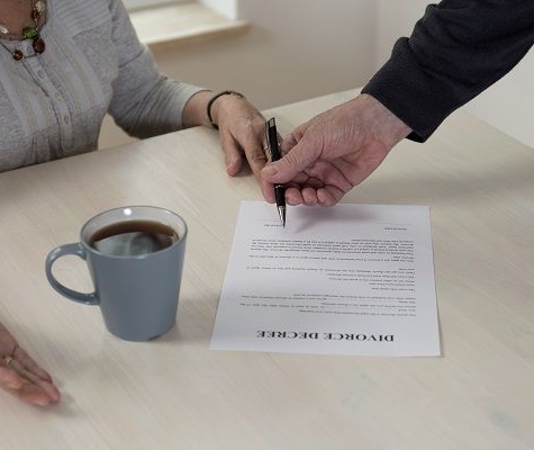What Happens After the Final Divorce Decree is Signed

Every person involved in a divorce looks forward to the day that the case
is finally over. Divorce can be a long and stressful process, so it is
no surprise that the parties look to the end of the case with a high degree
of anticipation. Once the case is over and the final decree is signed,
there may still be some work to be done by the parties or their attorneys.
The most pressing thing to be done following a divorce decree may be an
appeal. If either party is dissatisfied with the trial court’s ruling,
he or she may file an appeal to the Appellate Division. This process involves
attorneys writing briefs to the appellate court informing them of flaws
in the trial court’s legal reasoning or other errors. However, you
cannot appeal just because you don’t like the court’s decision.
If the appellate court agrees that there was something wrong with the
divorce decree, they may set the decree aside and send the matter back
to the trial court for reconsideration. Appeal deadlines are quick and
unforgiving, so any party wishing to appeal needs to act quickly.
Regardless of whether there is an appeal, the parties need to look at the
final decree to determine what happens next. If personal property was
in dispute at the time of the final hearing, then the decree will detail
which spouse receives what property. The parties are obligated to work
together to get the property sorted out in the way ordered by the court.
There may be deadlines set in the final decree by the court, so the parties
should be sensitive to these time restrictions.
Retirement accounts are often divided in a divorce. Typically retirement
accounts or pensions are divided using a special order called a “Qualified
Domestic Relations Order,” or QDRO. This will be an order that is
drawn up separately from the final decree and sent straight to the financial
institution responsible for the account. After the court decides how the
accounts are to be divided, your attorney will draft the QDRO and submit
it for the court’s approval before it is sent to the financial institution.
Child and spousal support may have also been set by your final decree.
The decree will contain specific provisions for the date the support is
due each month and when the support payments are required to start. The
order may also require that your attorney draw up a special order to have
these payments deducted directly from the paycheck of paying spouse. This
will need to be done as soon as possible after the decree.
Even when a divorce is over, there are still many loose ends that need
to be wrapped up. If you have questions about the process after your divorce,
call us today at (732) 529-6937. We have
finalize their case and can answer your questions.
